Diversity, Inclusion &
Community Engagement
at Tennessee Law

The College of Law is committed to promoting and cultivating diversity, which is expressed in myriad of forms, including race, color, ethnicity, religion, national origin, gender, gender identity or expression, sexual orientation, age, disability, military status, socio-economic status and viewpoint.
Our immediate aim is to foster a more inclusive learning and working environment for our entire community – one that succeeds and thrives because of its diversity.
Our broader aim is to learn, teach and practice the principles of equity and justice to ensure that all people have the opportunity to grow, contribute and achieve their aspirations. We commit to pursuing deliberate efforts to ensure that our college welcomes differences and is a place where different perspectives are heard and every individual feels a sense of belonging.
To ensure equity, we also commit to challenge and respond to bias, harassment, and discrimination, and to provide equal opportunities for our students, faculty and staff.

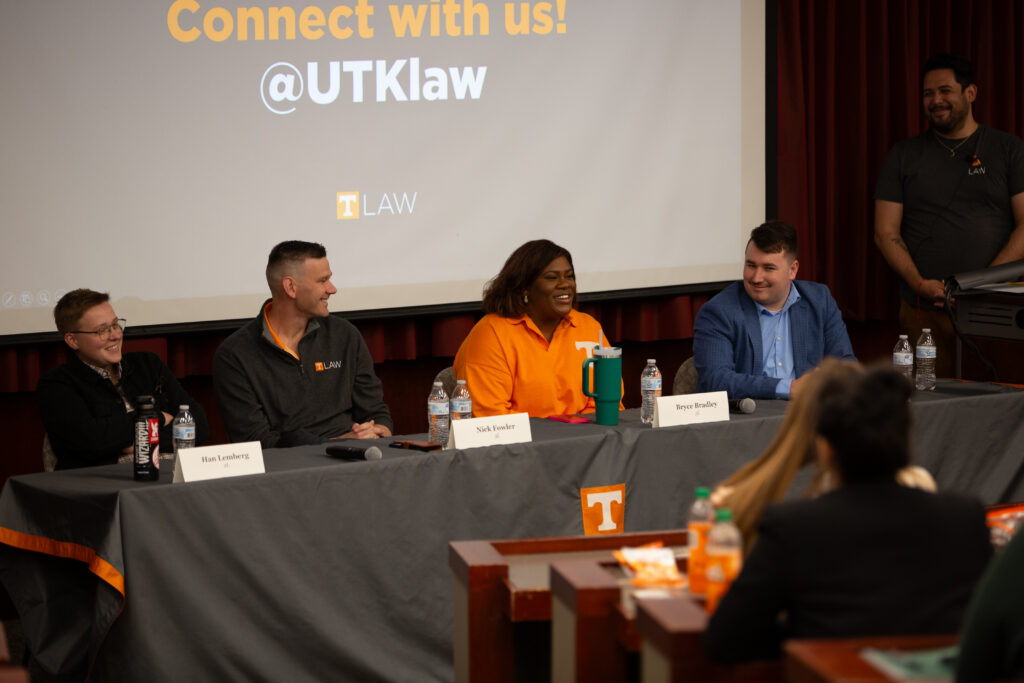
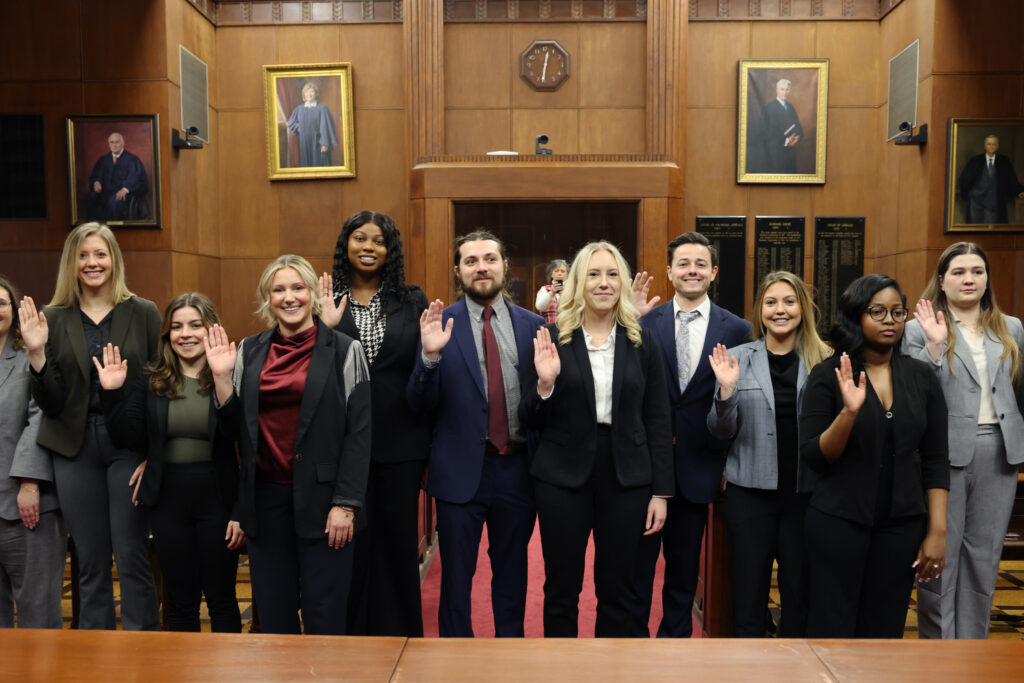
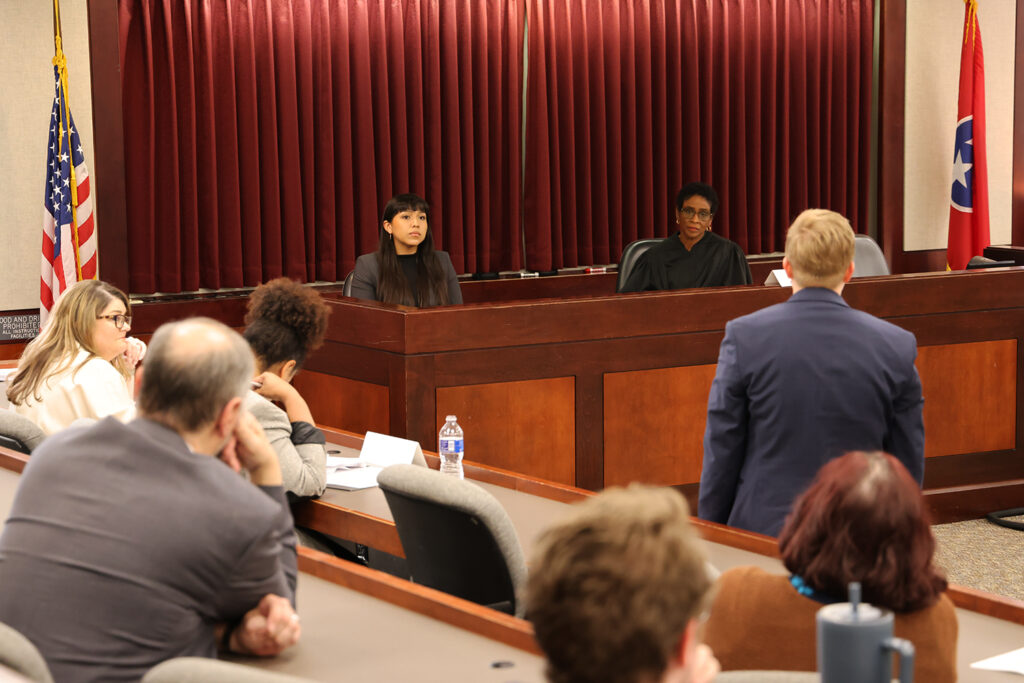
COMMUNITY ENGAGEMENT
Faculty, staff, and students at the University of Tennessee College of Law are actively involved in community engagement efforts. As the law school for the state’s flagship institution, we are deeply committed to the land grant mission and to its call to support and collaborate with our community.
Pro Bono Programs
Students engage in pro bono work, providing free legal assistance to underserved communities.
TN Supreme Court recognizes students for pro bono service

Legal Clinic
The College of Law’s Legal Clinic works extensively with our neighboring communities to offer a variety of legal services.
Students in the Expungement Mini-Clinic provide critical legal assistance to underserved citizens in having criminal offenses expunged, thereby facilitating their ability to exercise important rights.
Students in the Transactional Law Legal Clinic interact with local, state and federal agencies on behalf of underrepresented clients to draft contracts and governance documents; conduct regulatory research and provide compliance advice; and provide legal presentations to the community.
UT Legal Clinic Honored for Extraordinary Community Service
Research and Advocacy to Support Community Priorities
The law school’s faculty, staff, and students work with individuals across campus and with partners in the region to support communities throughout Tennessee and beyond.
Student Organizations and Engagement
The annual Julian Blackshear Jr. Scholarship Gala celebrates students, alumni and friends who have positively impacted the University of Tennessee College of Law through their commitment to diversity and inclusion.
The event is organized annually by the Dean’s Office in partnership with the Black Law Students Association (BLSA).


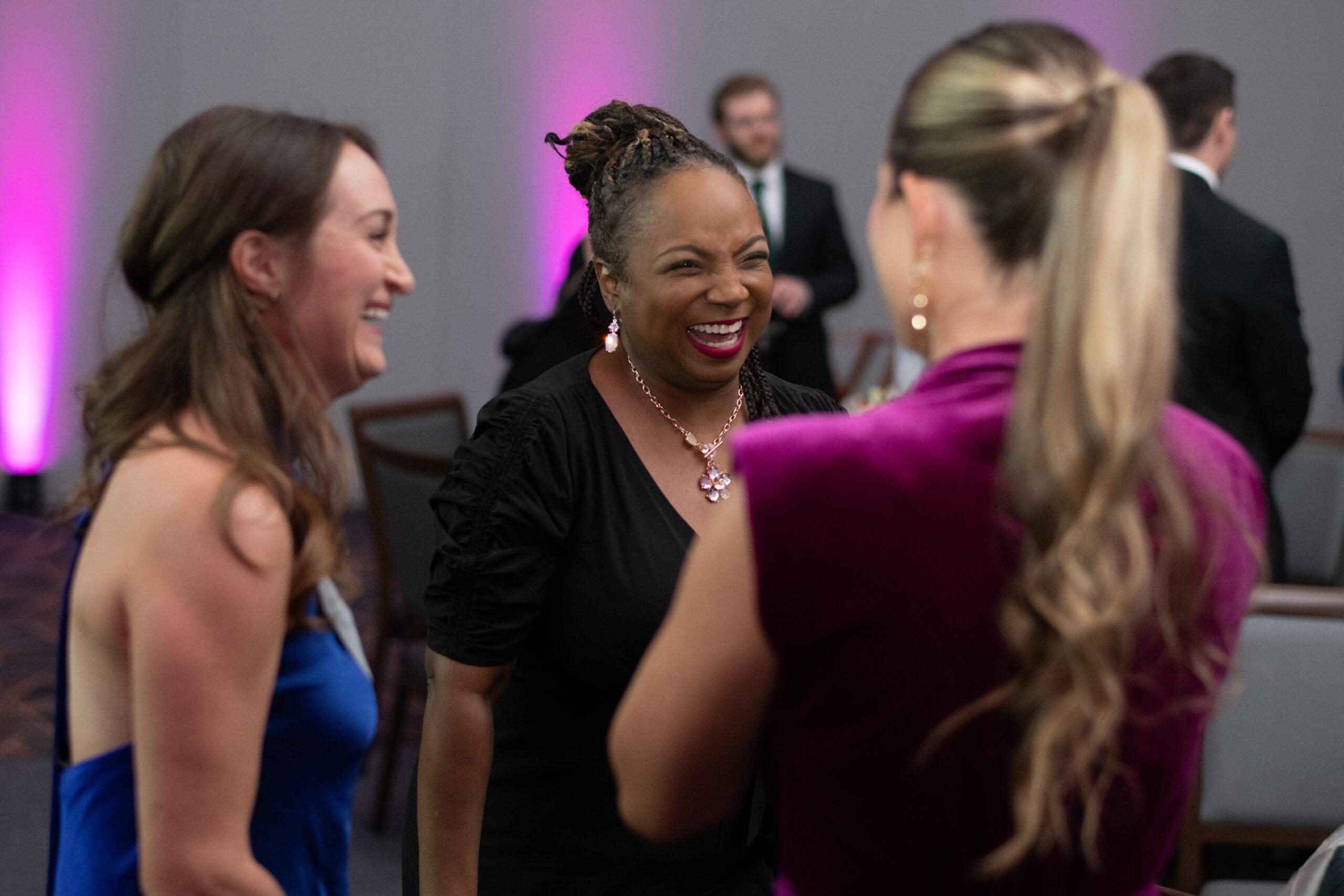
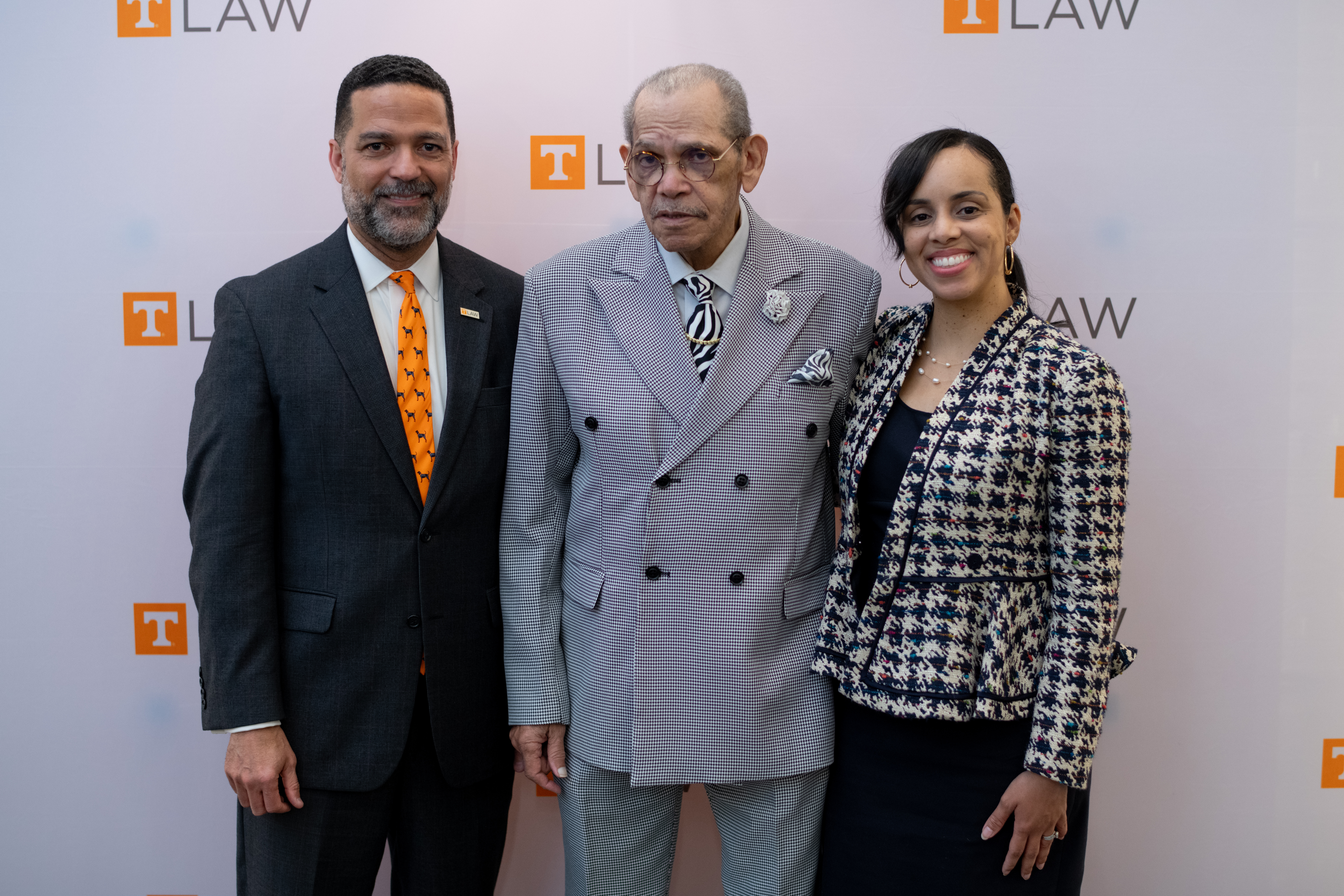
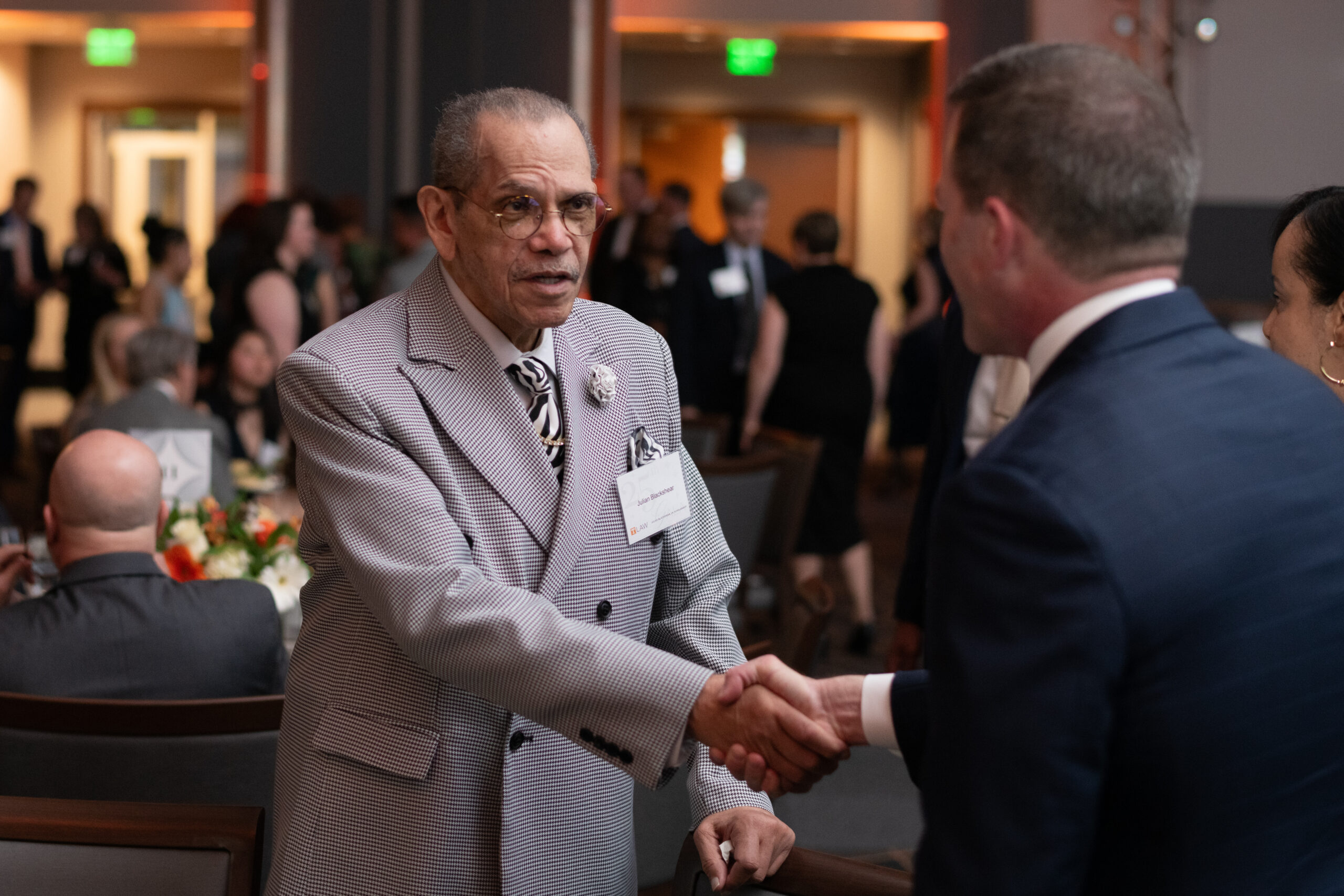

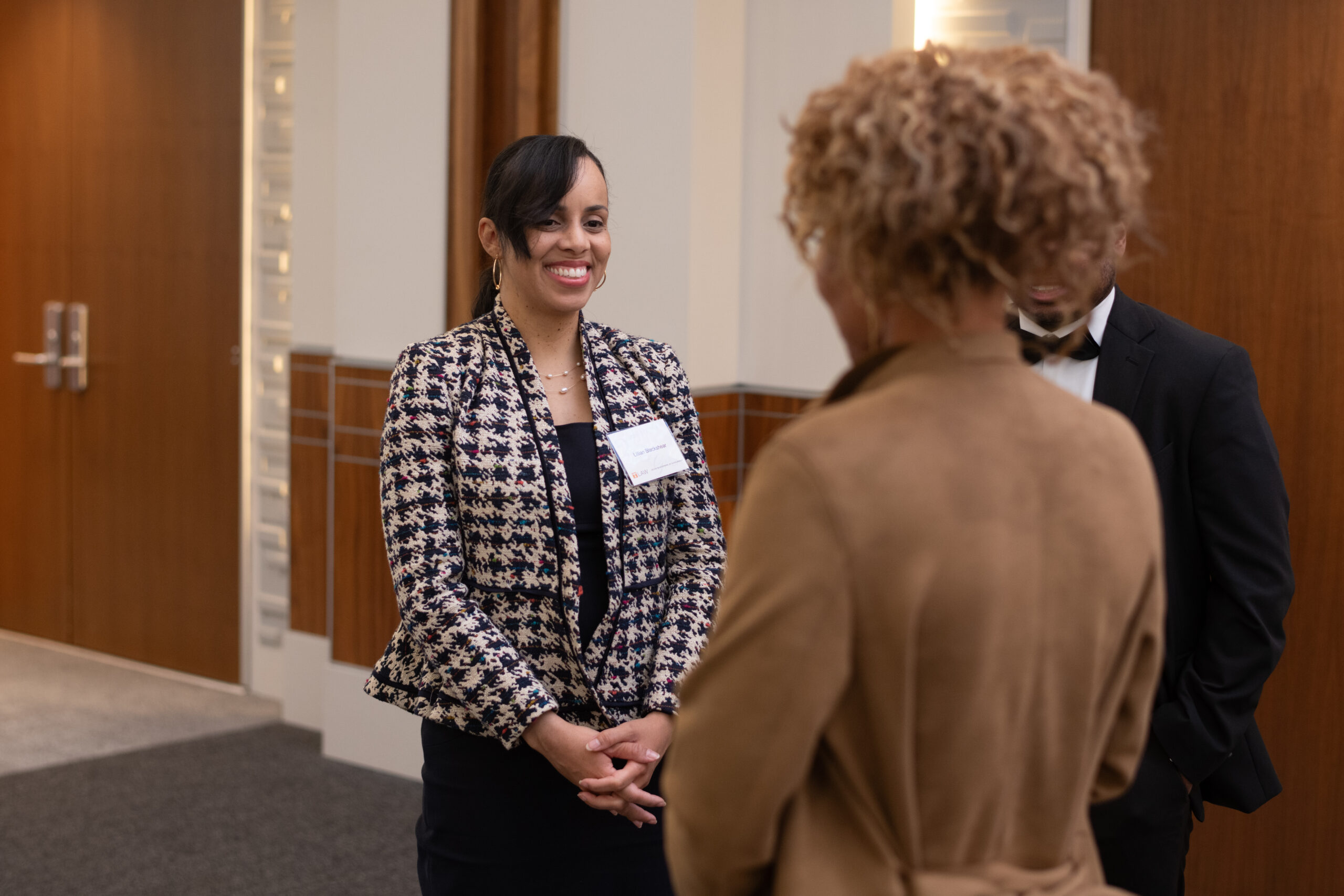
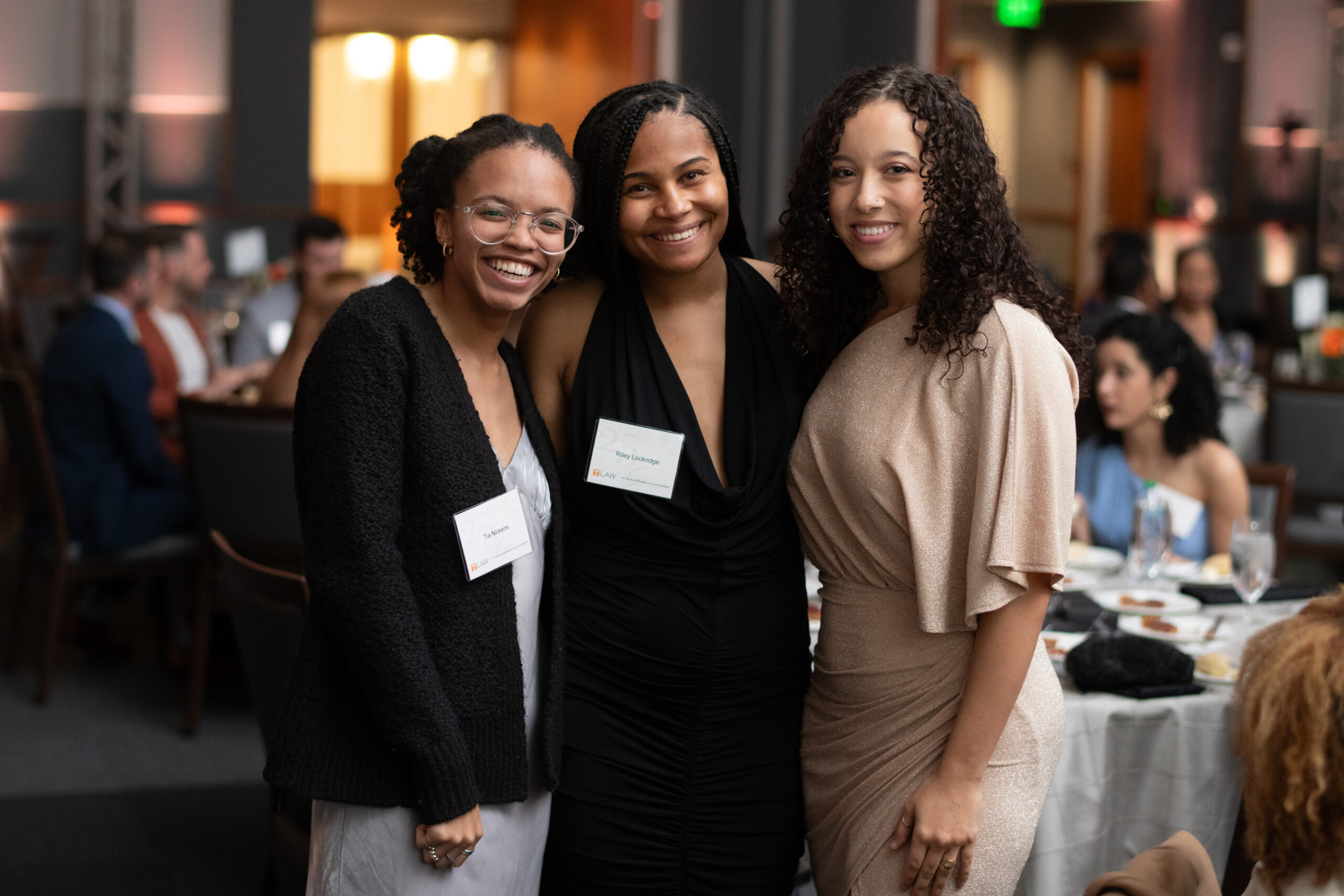
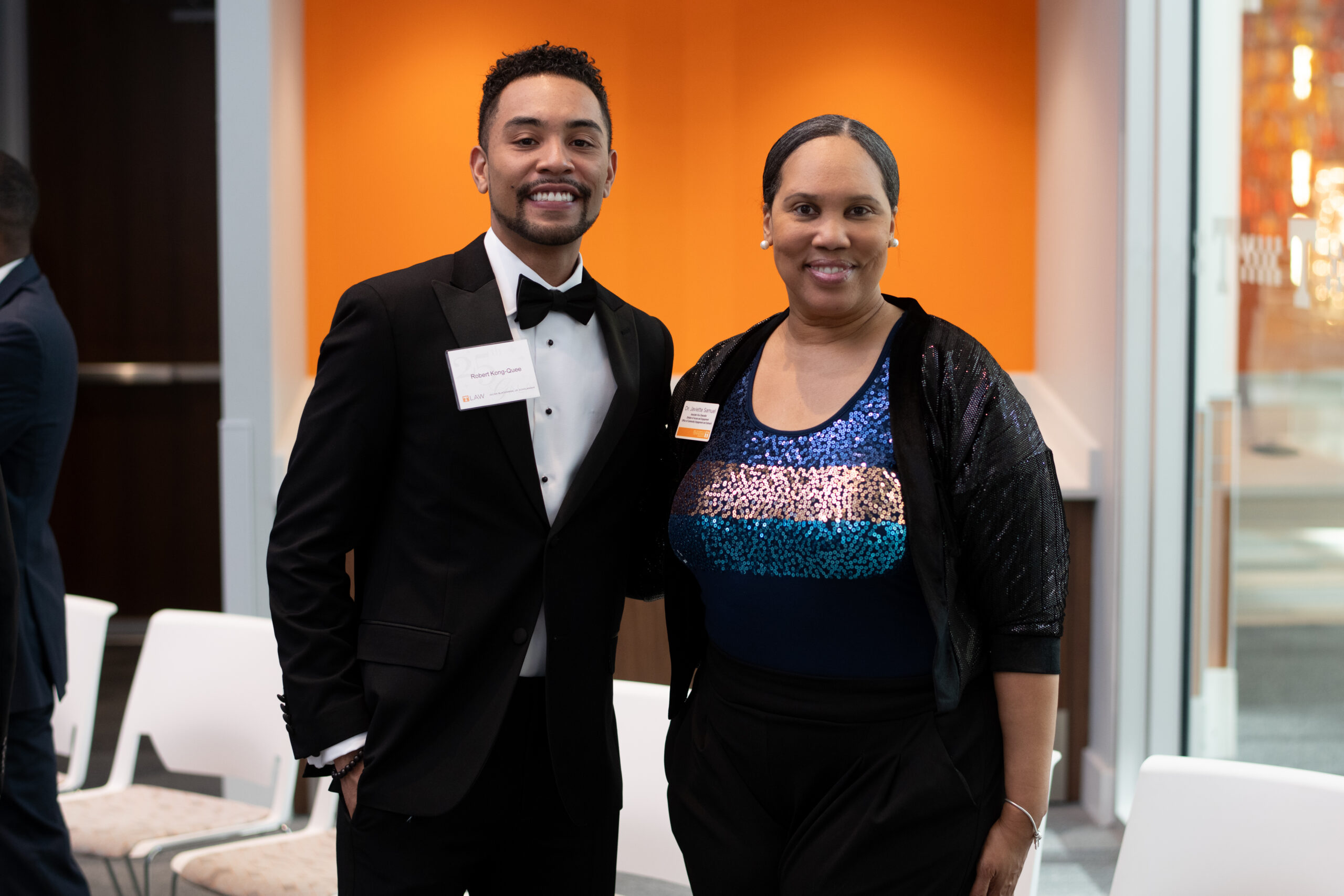









Hosted by the Black Law Students Association, Dr. Theotis Robinson visited the College of Law to share his trailblazing history as one of the first African American students admitted to UT.
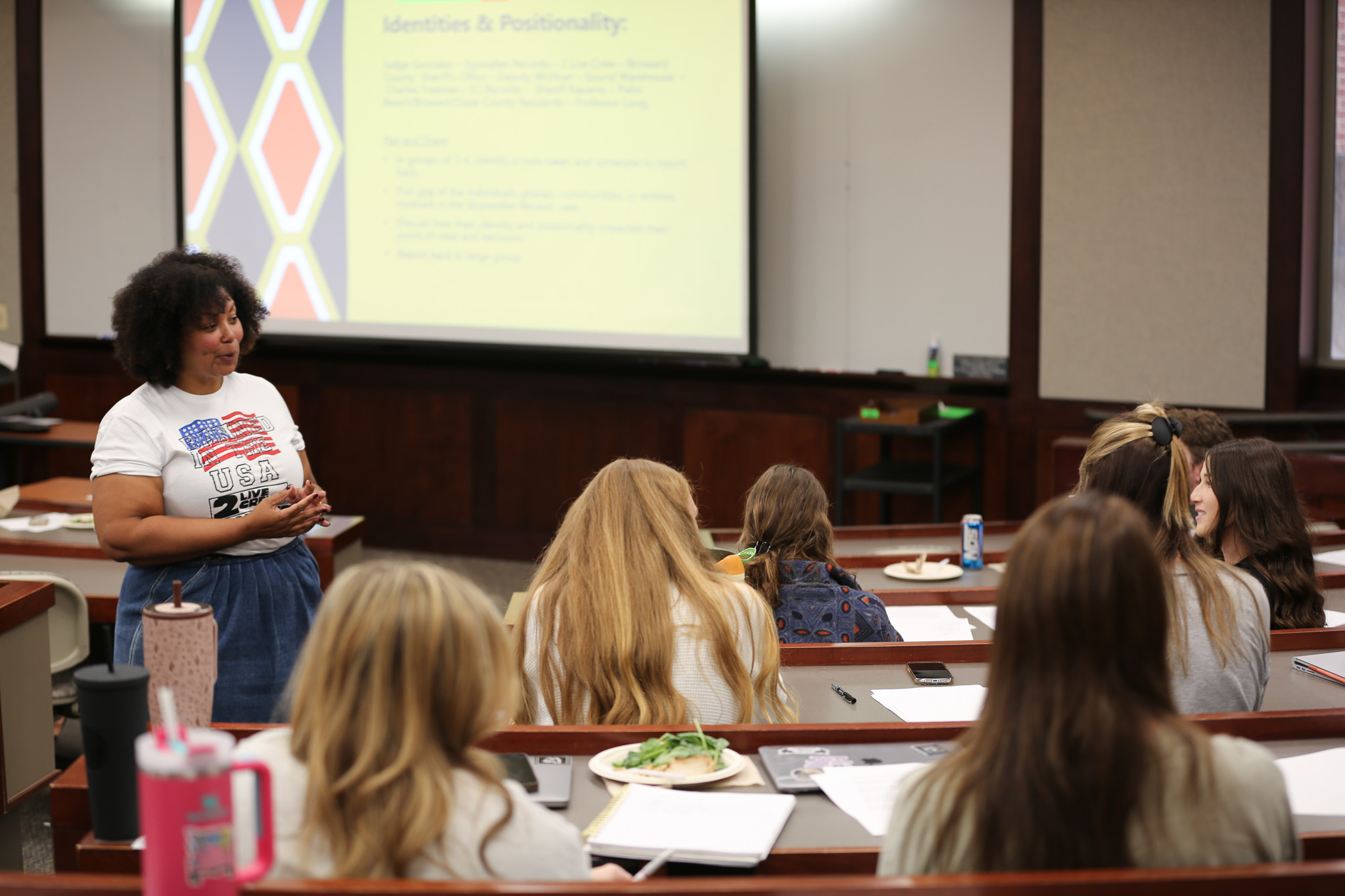
CURRICULUM
Tennessee Law’s curricular offerings reflect the law school’s value of building a more just society by promoting a learning environment that is robust, engaging, and inclusive.
Diversity, Inclusion & Community Engagement in the Curriculum: Throughout the curriculum, faculty prepare their students to be responsible legal professionals by fostering dialogue that bridge cultural differences, encouraging civil discourse, and providing instruction on bias, cultural competency, and racism.
Elective Choice: Students have the choice of numerous courses–such as Appalachian Justice Research Lab, Civil Rights Actions, Disability Law, and Sex, Gender, & Justice–that are designed to expose them to a variety of perspectives and legal issues.
Learn more about Tennessee Law’s courses here.
Inclusive Teaching at Tennessee Law: This LibGuide expertly crafted by Joel A. Katz Law Library professors aides faculty who are dedicated to using best practices in inclusive teaching.
Faculty Scholarship
The faculty of the UT College of Law are engaged in a wide variety of research that crosses cultures and appeals to those with multiple interests. Their work spans a wide range of fields including human rights, civil rights, international law and criminal law. Some examples include:
- Sherley Cruz, Becky Jacobs, et. al., ABA Standard 303(c) and Divisive Concepts Legislation and Policies: Challenges and Opportunities, 73 Wash. U. J.L. & Pol’y 247 (2024)
- Joan MacLeod Heminway, Corporate Management Should All Be Feminists, 40 Law & Ineq. 409 (2022).
- Michael J. Higdon, LGBTQ Youth and the Promise of the Kennedy Quartet, 43 Cardozo L. Rev. 2385 (2022).
- Michelle Kwon, Tapping into the Talent Pipeline While Repairing the Leaky Pipe, 55 Toledo L. Rev. 219 (2024).
- Alex Long, What the Lawyer Well-Being Movement Could Learn from the Americans with Disabilities Act, 63 William & Mary L. Rev. Online 63 (2022).
- Deflect, Delay, Deny: A Case Study of Segregation by Law School Faculty, 90 Tenn. L. Rev. 1 (2022).
Diversity, Inclusion, and Community Engagement Leadership
Associate Dean for Diversity, Inclusion, and Community Engagement
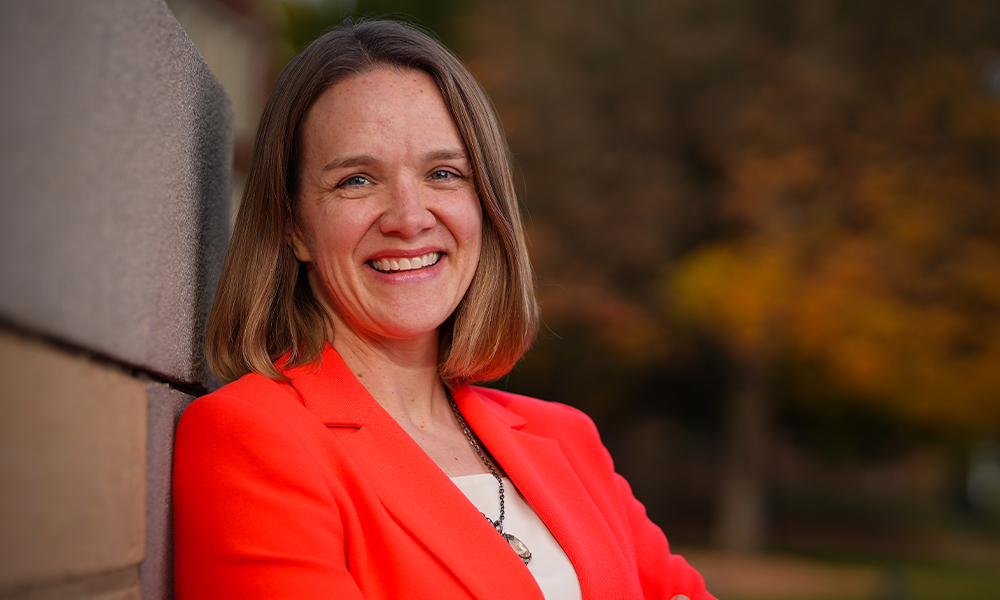
Briana Rosenbaum currently serves as the Associate Dean for Diversity, Inclusion, and Community Engagement. Dean Rosenbaum’s most recent scholarship focuses on the history of race in American legal education.
Deflect, Delay, Deny: A Case Study of Segregation by Law School Faculty
Read more about Associate Dean Rosenbaum
Community and Inclusion Committee
The Community and Inclusion Committee supports faculty, staff, and students in scholarship, teaching, and service projects related to access, belonging, community, and cultural humility at Tennessee Law. The Committee–made up of faculty, staff, and students–plans programming and recommends policies and strategies for increasing access to legal education, engaging with the community, and enhancing the welcoming and inclusive atmosphere of the College of Law.
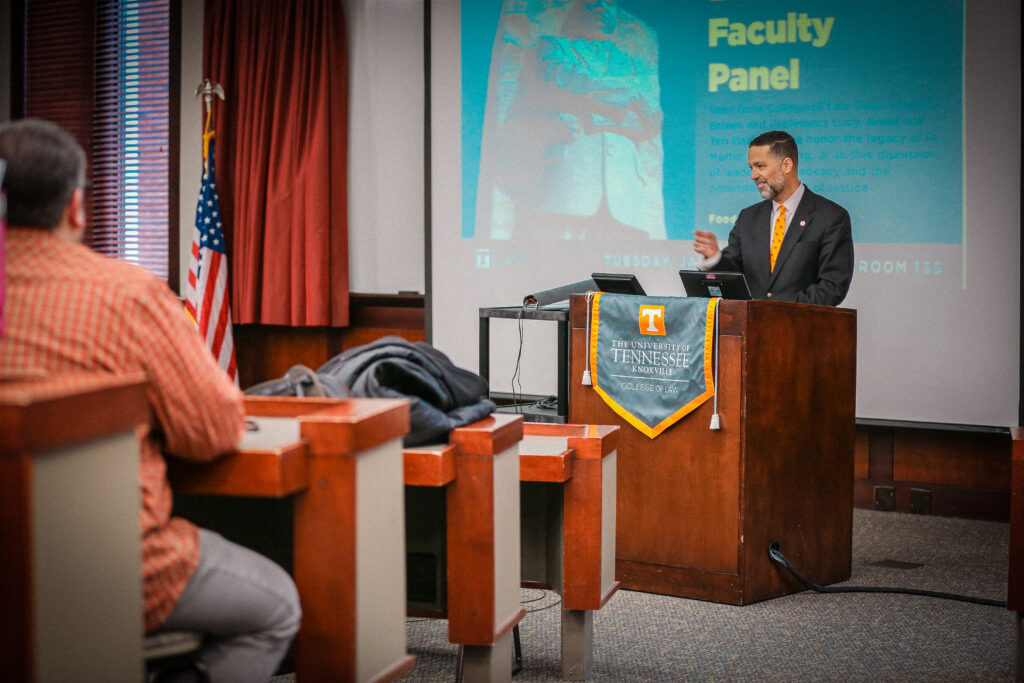
- UT Law Bias Reporting & Education Process here
- University of Tennessee Campus Climate Reporting here
- Mental Health & Wellness Resources here
- University of Tennessee Student Disability Services here
- Resource guide for students, faculty, and staff that provides information about the greater Knoxville area, on-campus resources, small, locally-owned businesses and restaurants, community DEI resources, and more here
- University of Tennessee’s Office of Access and Engagement here
Diversity, Inclusion &
Community Engagement
at Tennessee Law

The College of Law is committed to promoting and cultivating diversity, which is expressed in myriad of forms, including race, color, ethnicity, religion, national origin, gender, gender identity or expression, sexual orientation, age, disability, military status, socio-economic status and viewpoint.
Our immediate aim is to foster a more inclusive learning and working environment for our entire community – one that succeeds and thrives because of its diversity.
Our broader aim is to learn, teach and practice the principles of equity and justice to ensure that all people have the opportunity to grow, contribute and achieve their aspirations. We commit to pursuing deliberate efforts to ensure that our college welcomes differences and is a place where different perspectives are heard and every individual feels a sense of belonging.
To ensure equity, we also commit to challenge and respond to bias, harassment, and discrimination, and to provide equal opportunities for our students, faculty and staff.

COMMUNITY ENGAGEMENT
Faculty, staff, and students at the University of Tennessee College of Law are actively involved in community engagement efforts. As the law school for the state’s flagship institution, we are deeply committed to the land grant mission and to its call to support and collaborate with our community.
Pro Bono Programs
Students engage in pro bono work, providing free legal assistance to underserved communities.
TN Supreme Court recognizes students for pro bono service
Legal Clinic
The College of Law’s Legal Clinic works extensively with our neighboring communities to offer a variety of legal services.
Students in the Expungement Mini-Clinic provide critical legal assistance to underserved citizens in having criminal offenses expunged, thereby facilitating their ability to exercise important rights.
Students in the Transactional Law Legal Clinic interact with local, state and federal agencies on behalf of underrepresented clients to draft contracts and governance documents; conduct regulatory research and provide compliance advice; and give legal presentations to the community.
UT Legal Clinic Honored for Extraordinary Community Service
Research and Advocacy to Support Community Priorities
The law school’s faculty, staff, and students work with individuals across campus and with partners in the region to support communities throughout Tennessee and beyond.
Student Organizations and Engagement
The annual Julian Blackshear Jr. Scholarship Gala celebrates students and alumni who have positively impacted the University of Tennessee College of Law through their commitment to diversity and inclusion.
The event is organized annually by the Dean’s Office in partnership with the Black Law Students Association (BLSA).
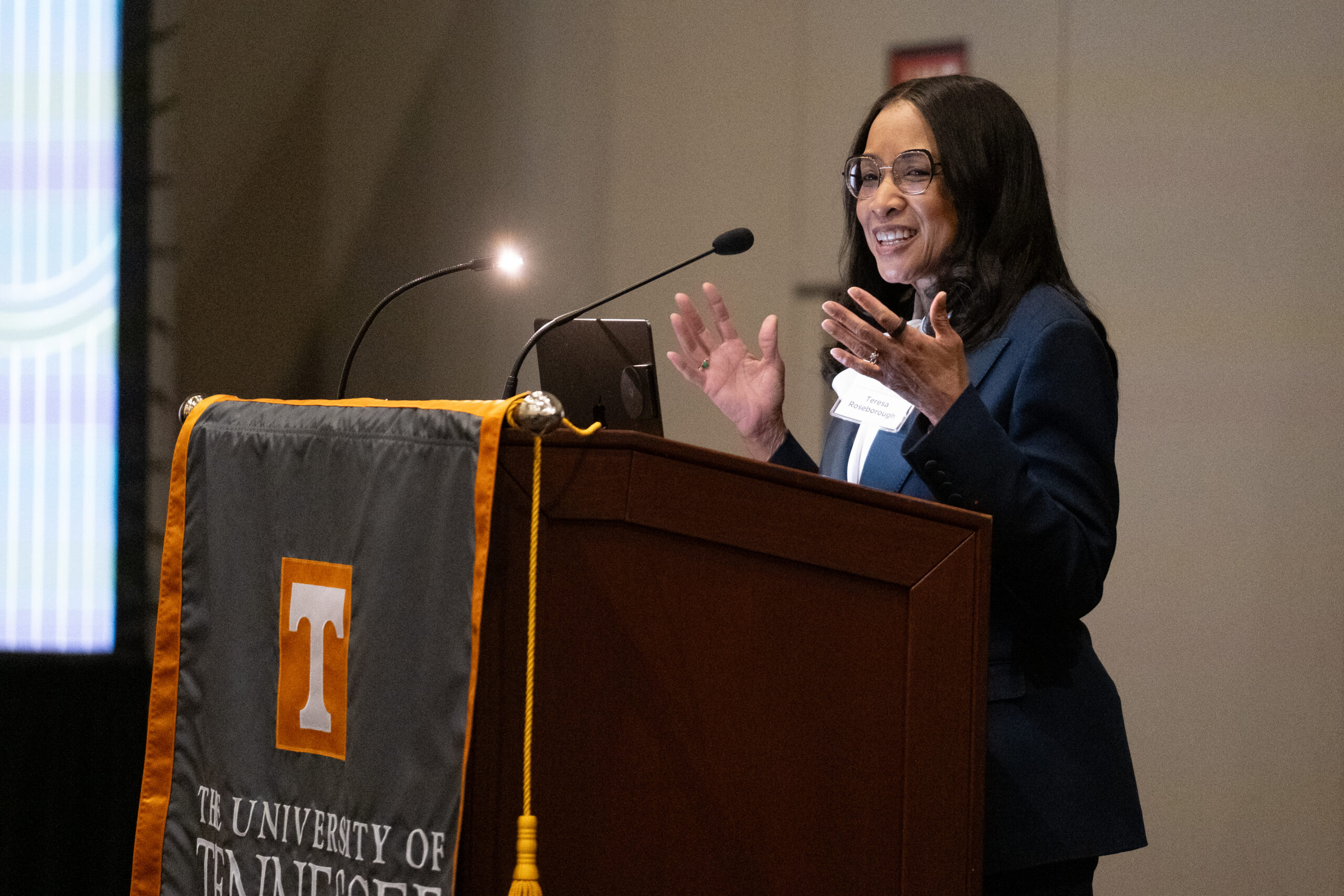
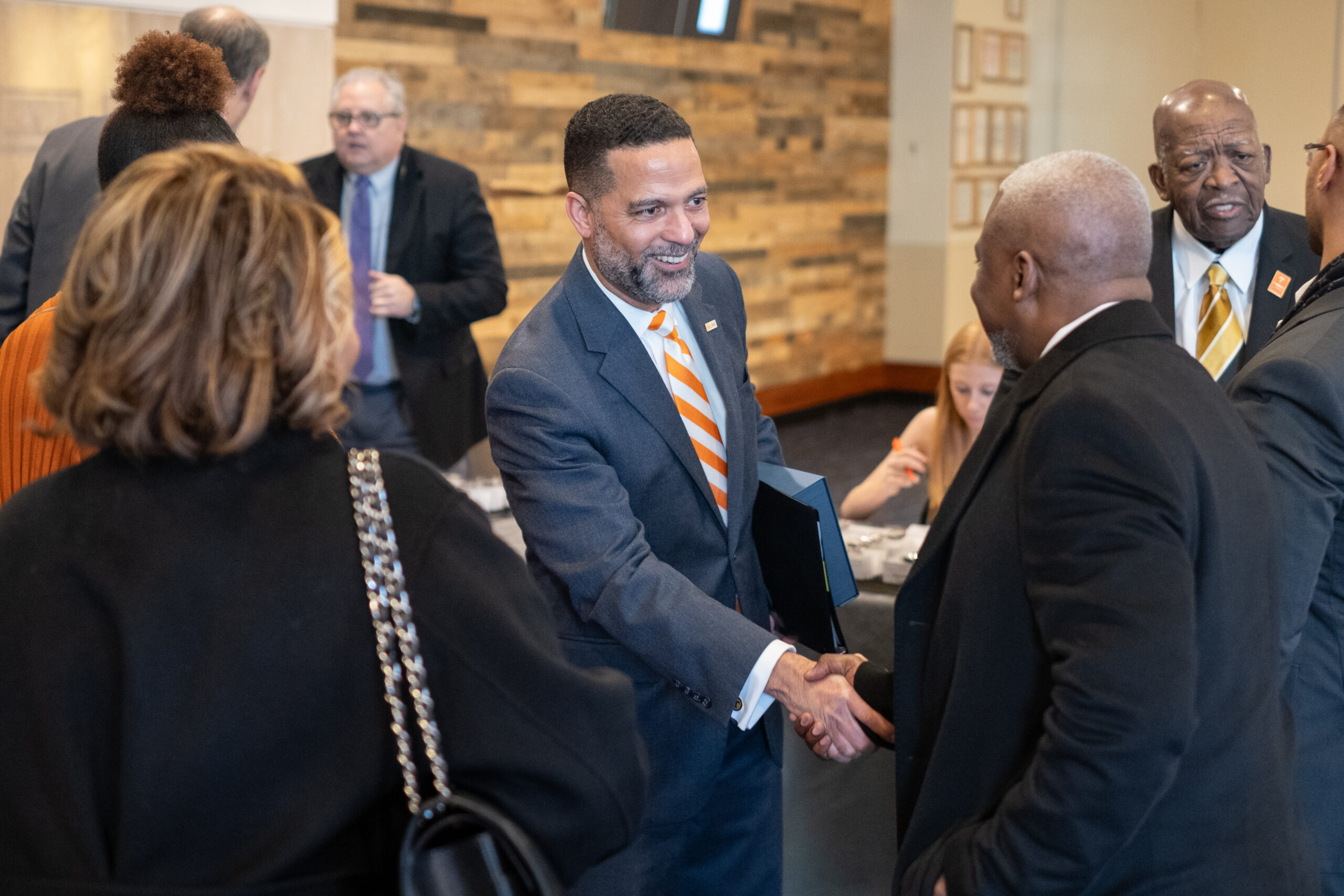
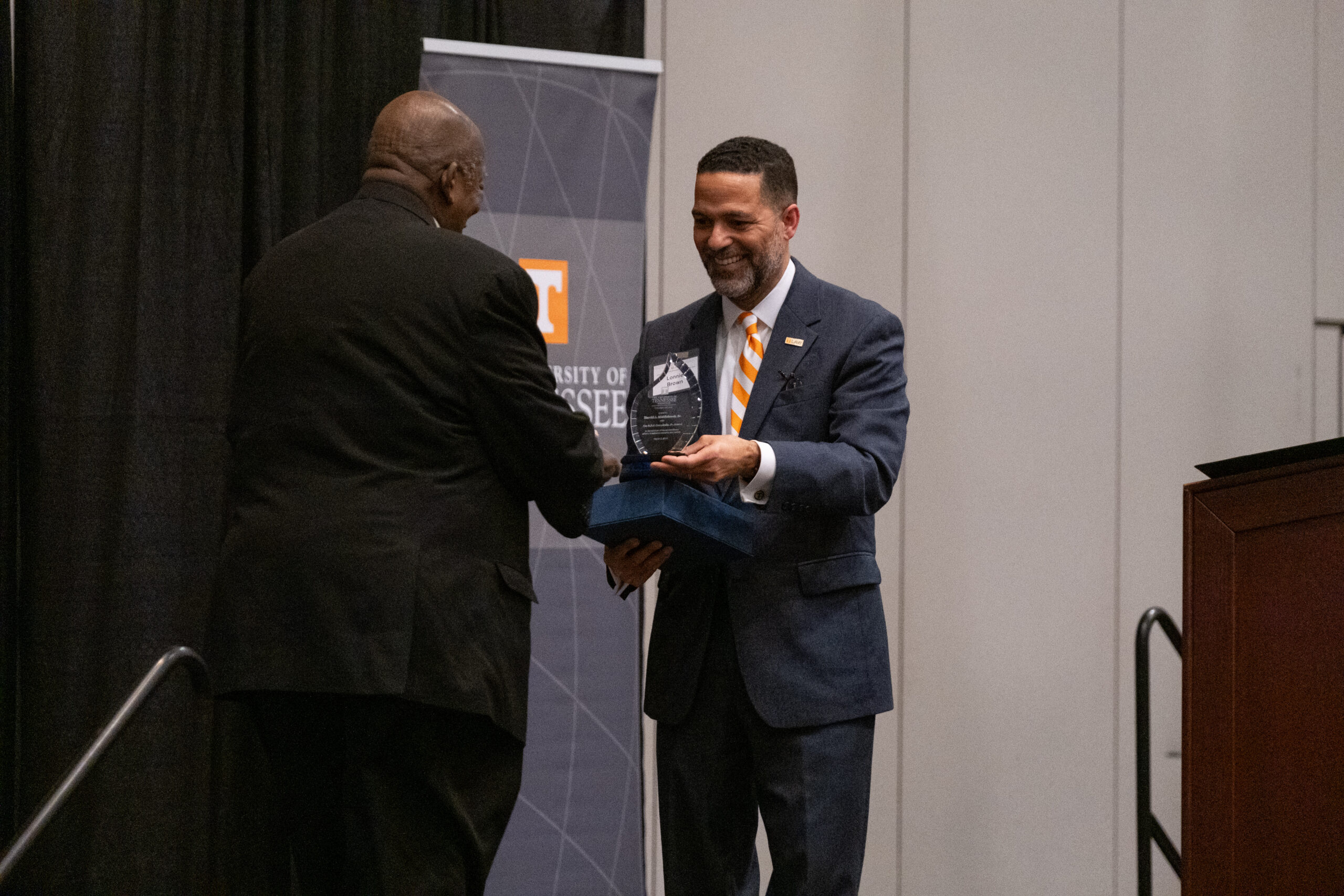
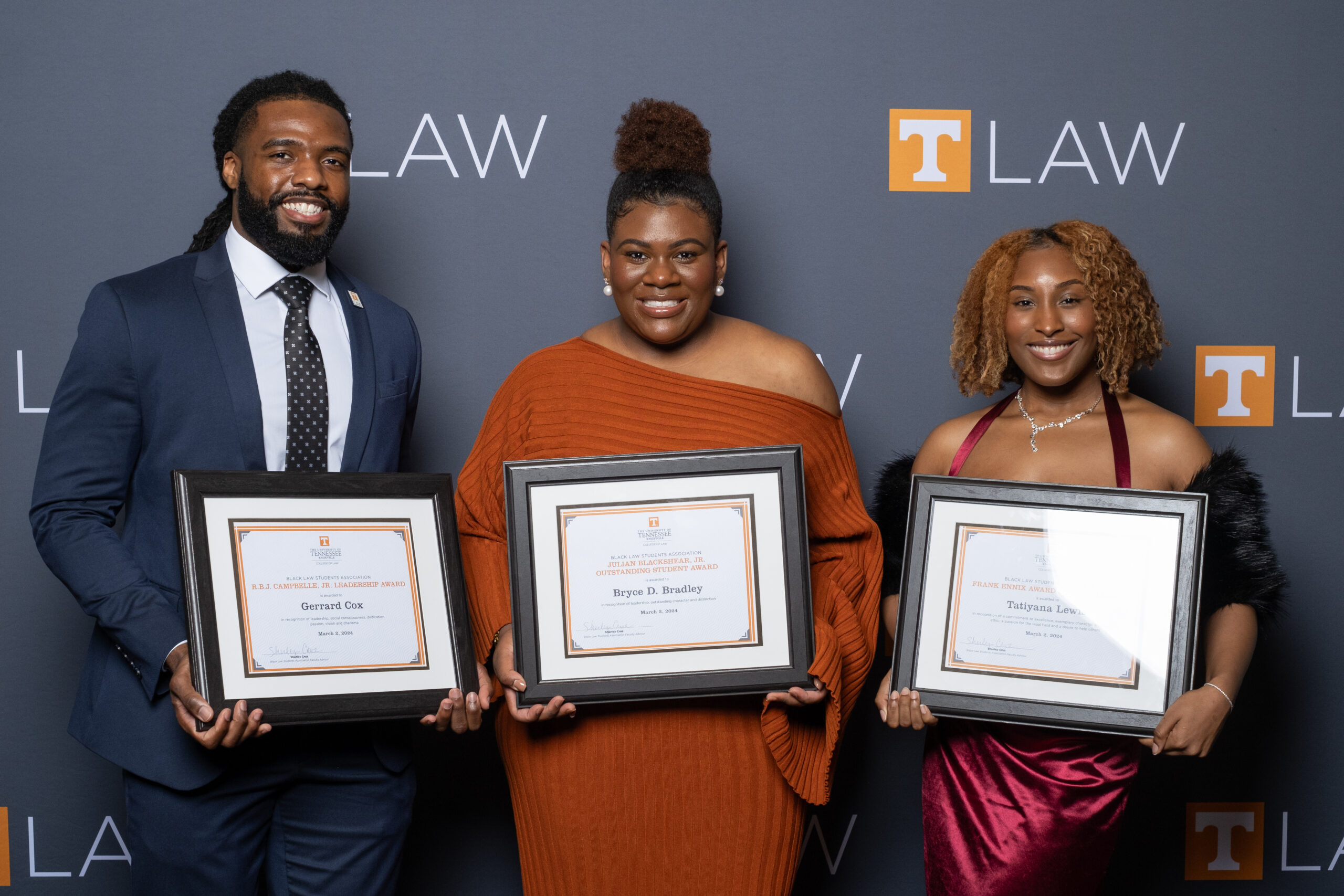
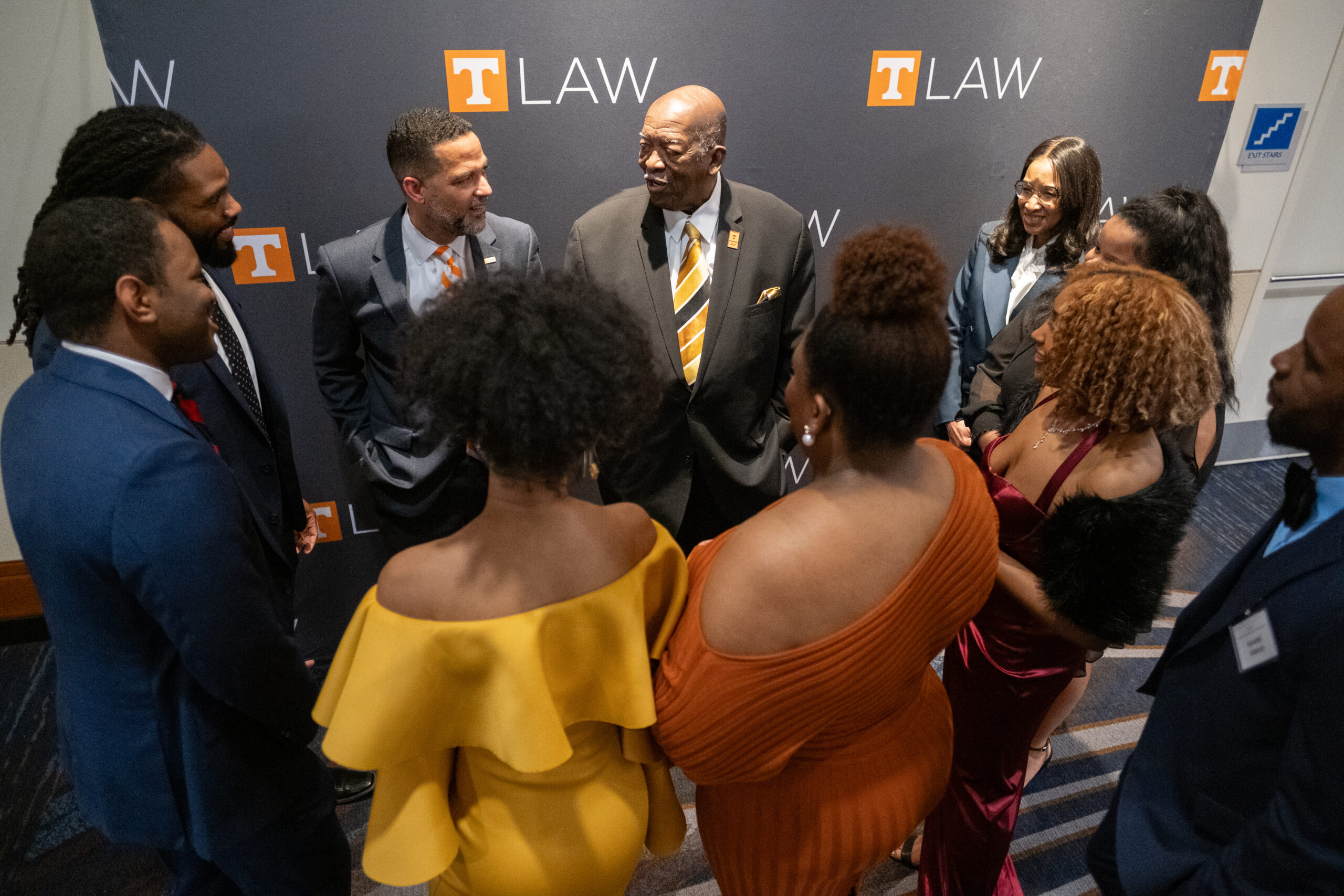
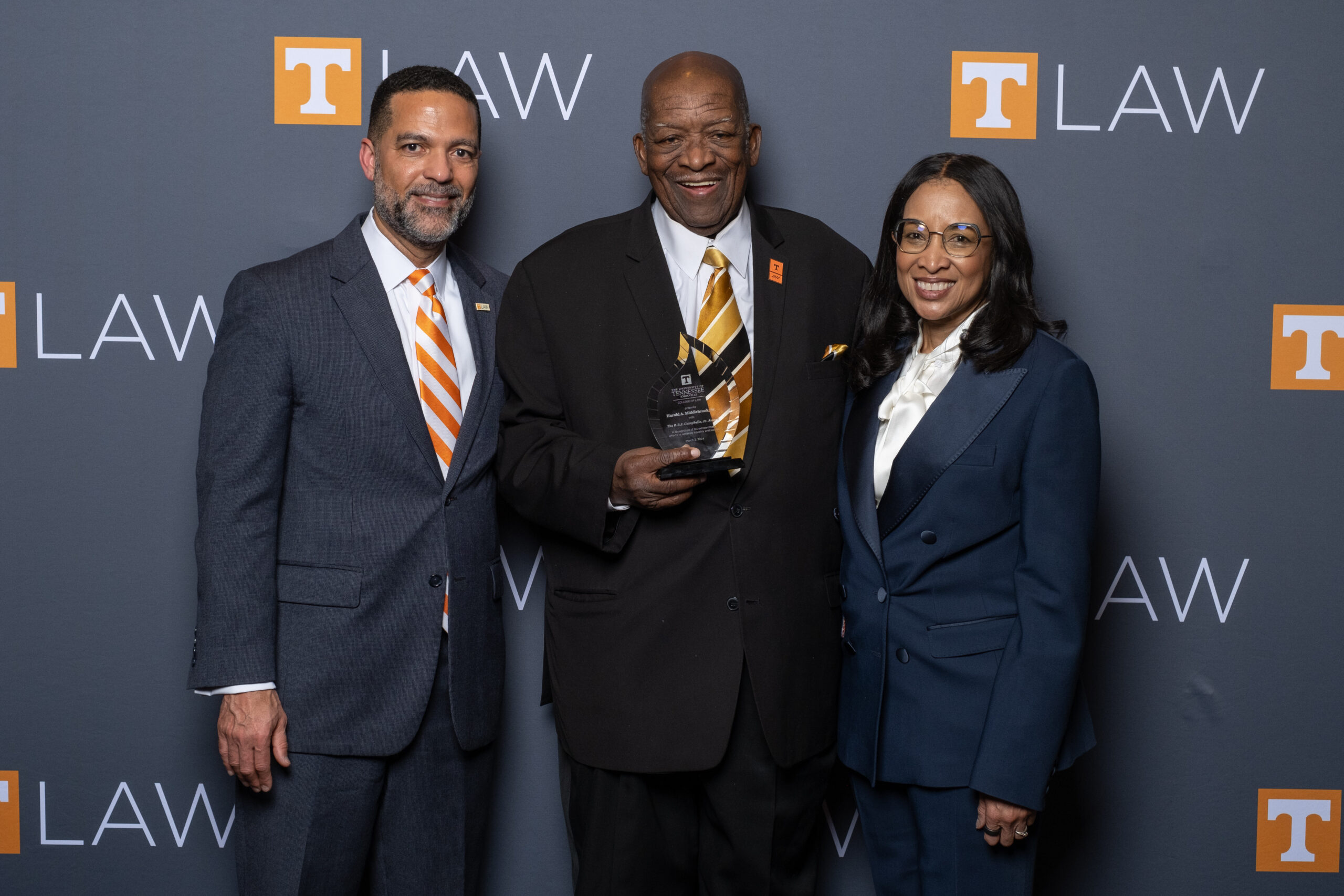
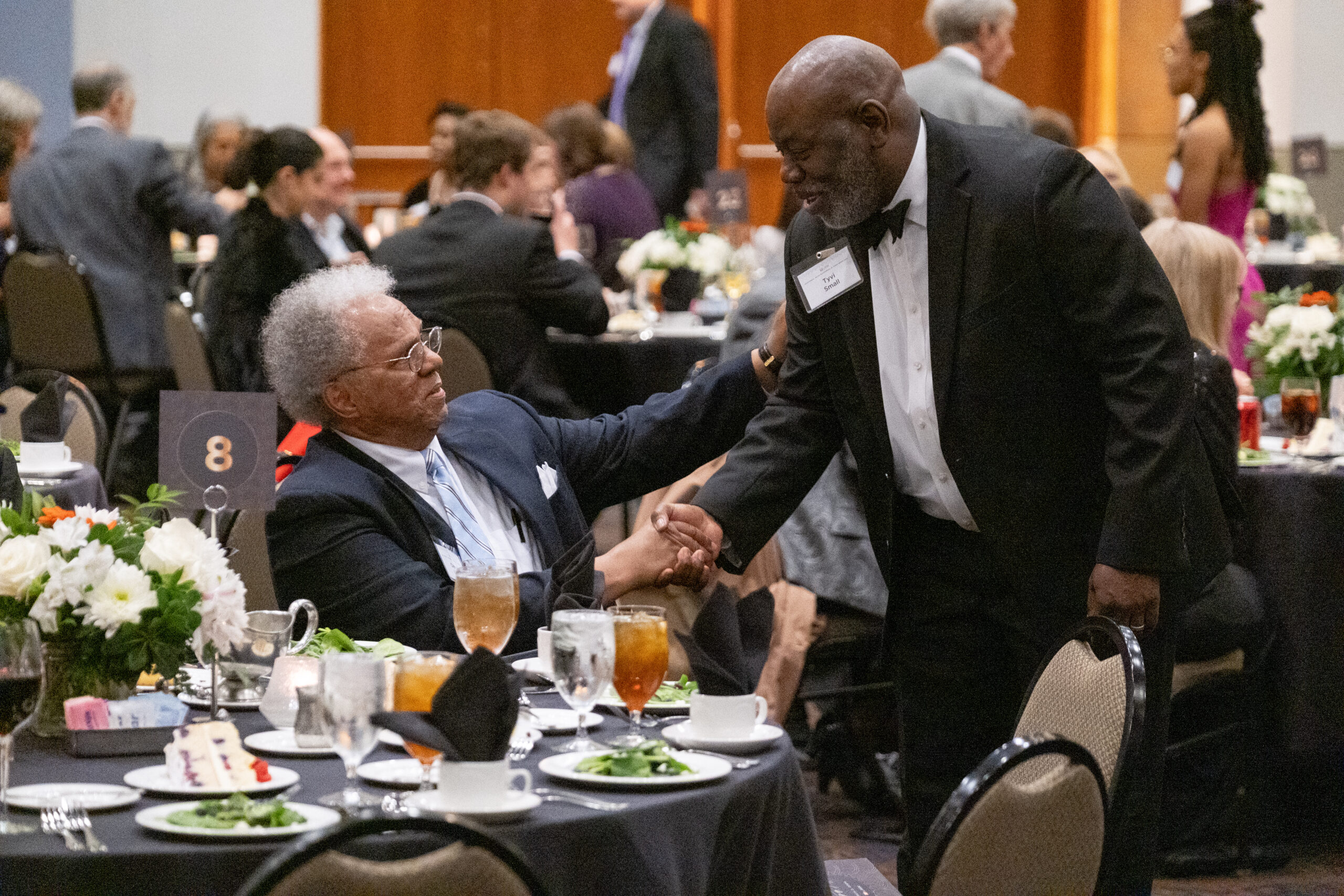
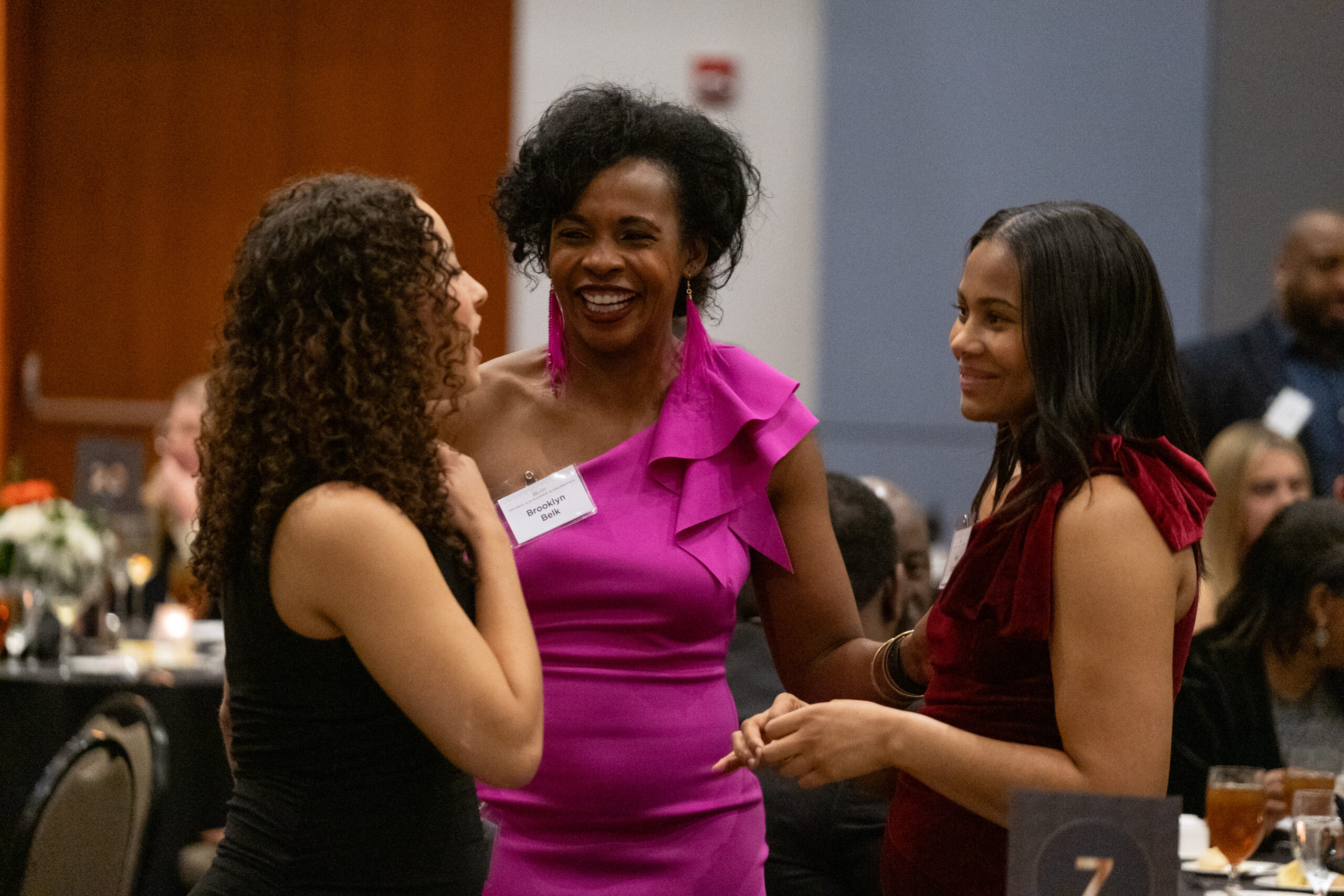






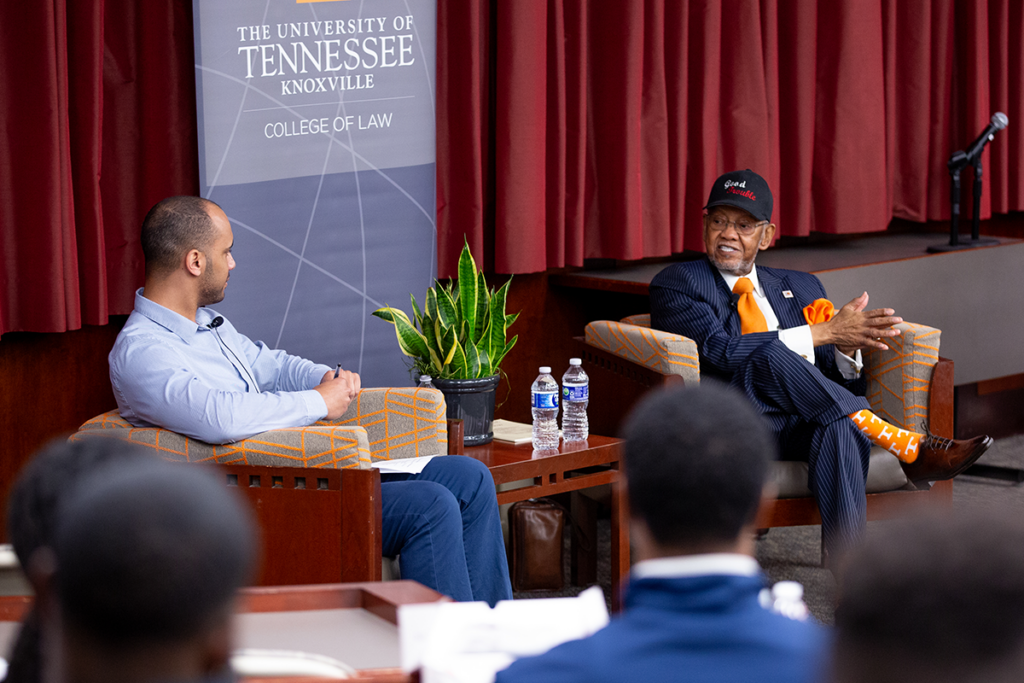
Hosted by the Black Law Students Association, Dr. Theotis Robinson visited the College of Law to share his trailblazing history as one of the first African American students admitted to UT.

CURRICULUM
Tennessee Law’s curricular offerings reflect the law school’s value of building a more just society by promoting a learning environment that is robust, engaging, and inclusive.
Diversity, Inclusion & Community Engagement in the Curriculum: Throughout the curriculum, faculty prepare their students to be responsible legal professionals by fostering dialogue that bridge cultural differences, encouraging civil discourse, and providing instruction on bias, cultural competency, and racism.
Elective Choice: Students have the choice of numerous courses–such as Appalachian Justice Research Lab, Civil Rights Actions, Disability Law, and Sex, Gender, & Justice–that are designed to expose them to a variety of perspectives and legal issues.
Learn more about Tennessee Law’s courses here.
Inclusive Teaching at Tennessee Law: This LibGuide expertly crafted by Joel A. Katz Law Library professors aides faculty who are dedicated to using best practices in inclusive teaching.
Faculty Scholarship
The faculty of the UT College of Law are engaged in a wide variety of research that crosses cultures and appeals to those with multiple interests. Their work spans a wide range of fields including human rights, civil rights, international law and criminal law. Some examples include:
- Sherley Cruz, Becky Jacobs, et. al., ABA Standard 303(c) and Divisive Concepts Legislation and Policies: Challenges and Opportunities, 73 Wash. U. J.L. & Pol’y 247 (2024)
- Joan MacLeod Heminway, Corporate Management Should All Be Feminists, 40 Law & Ineq. 409 (2022).
- Michael J. Higdon, LGBTQ Youth and the Promise of the Kennedy Quartet, 43 Cardozo L. Rev. 2385 (2022).
- Michelle Kwon, Tapping into the Talent Pipeline While Repairing the Leaky Pipe, 55 Toledo L. Rev. 219 (2024).
- Alex Long, What the Lawyer Well-Being Movement Could Learn from the Americans with Disabilities Act, 63 William & Mary L. Rev. Online 63 (2022).
- Deflect, Delay, Deny: A Case Study of Segregation by Law School Faculty, 90 Tenn. L. Rev. 1 (2022).
Diversity, Inclusion, and Community Engagement Leadership
Associate Dean for Diversity, Inclusion, and Community Engagement

Briana Rosenbaum currently serves as the Associate Dean for Diversity, Inclusion, and Community Engagement. Dean Rosenbaum’s most recent scholarship focuses on the history of race in American legal education.
Deflect, Delay, Deny: A Case Study of Segregation by Law School Faculty
Read more about Associate Dean Rosenbaum
Community and Inclusion Committee
The Community and Inclusion Committee supports faculty, staff, and students in scholarship, teaching, and service projects related to access, belonging, community, and cultural humility at Tennessee Law. The Committee–made up of faculty, staff, and students–plans programming and recommends policies and strategies for increasing access to legal education, engaging with the community, and enhancing the welcoming and inclusive atmosphere of the College of Law.

- UT Law Bias Reporting & Education Process here
- University of Tennessee Campus Climate Reporting here
- Mental Health & Wellness Resources here
- University of Tennessee Student Disability Services here
- Resource guide for students, faculty, and staff that provides information about the greater Knoxville area, on-campus resources, small, locally-owned businesses and restaurants, community DEI resources, and more here
- University of Tennessee’s Office of Access and Engagement here
